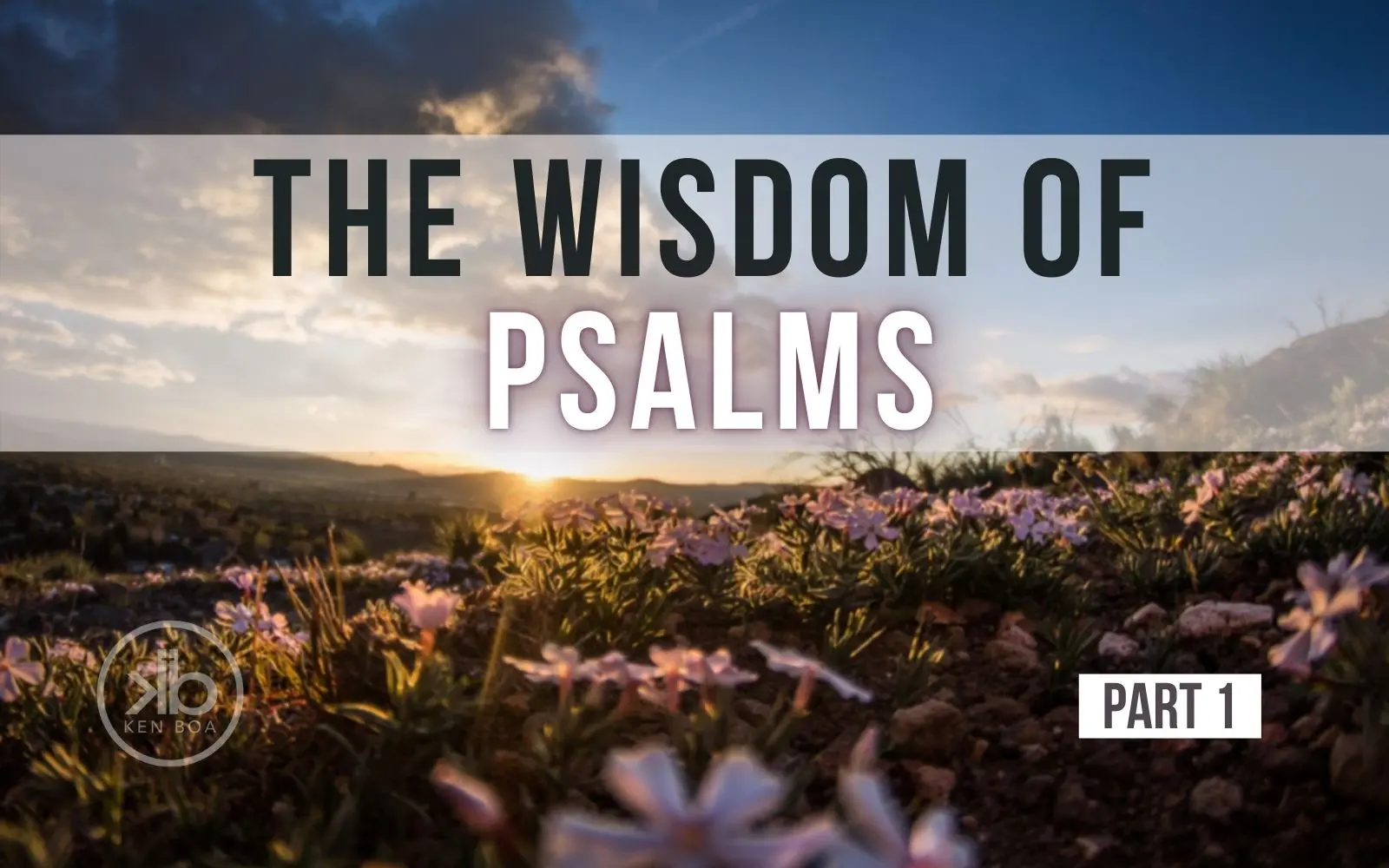The wisdom psalms teach us to treat things according to their true value. They give us perspective to see what is temporal and what is eternal, enabling us to live in light of that reality.
Psalm 73: Gaining Perspective
Psalm 73 is an example of a wisdom psalm. In it, Asaph is brutally honest about his struggle with why wicked people seem to prosper while good people suffer. The wicked seem to have control of their lives, and the more they get away with, the more they act as though they are not accountable to God. As a result, they treat what is temporal is if it were eternal. They have a mindset focused on immediate gratification and earthly pleasure.
Asaph struggled with the way the wicked prosper until he went into the temple of the Lord. When he did so, he regained an eternal perspective (Psalm 73:17). He recognized that, in the end, God will judge the wicked. They may temporarily get away with their injustice, but it will not last forever.
Asaph concludes this psalm by focusing on God. Although this world will pass away, “God is the strength of [our] heart and [our] portion forever” (v. 26). This does not mean Asaph’s life was easy or that he saw justice come to the wicked while on earth. Asaph is no preacher of the prosperity gospel. Instead, he reached a turning point when he turned his eyes from men and focused on his God.
Hebrews 11: Treasuring the Unseen
Very often, we are tempted to cling to our wealth or our perception of success. However, “faith is the assurance of things hoped for, the conviction of things not seen” (Hebrews 11:1). If we are truly wise, we can know that God will eventually reward those who seek Him. But He may not do so in this earthy life. Hebrews 11, after all, tells the stories of numerous individuals who received what was promised after death. They put their hope in the things unseen rather than in the things seen.
Part of what gives us this perspective is putting our hope in God. It is okay to hope for certain things—intercessory prayer is full of such desires—but our hope should only be in God. If He is the focus of our mind and our heart, then our foundation is secure. If He is not our focus, then we ought to pray for Him to draw us nearer to Him. This is a lifelong process. If we see His nearness as our greatest good, we will not be disappointed.
Psalm 19: The World, the Word, and the Way of God
This wisdom psalm moves us from general revelation (the world) to special revelation (the Word) to our response to God (the way in which He has called us to walk).
If we have the ears to hear and the eyes to see, creation reveals the glory of God. Even though creation does not speak with audible voices, it still points to God’s glory. Because this general revelation does not tell us everything about God, He gave us His inspired Word, His incarnate Word, and His indwelling Word.
This psalm concludes by calling us to respond to God’s revelation. The Word of God is like a moral mirror; it shows us where our faults are. But when we hear the Word, God is at work in us. He calls us to obedience and draws us nearer to Himself.
Watch more videos from Ken’s Monday night study here.



